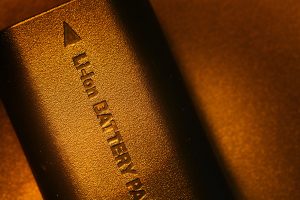 The U.S. Department of Energy will dedicate millions of dollars to advance recycling of lithium-ion batteries, which present major challenges when they are improperly recycled and end up in MRFs.
The U.S. Department of Energy will dedicate millions of dollars to advance recycling of lithium-ion batteries, which present major challenges when they are improperly recycled and end up in MRFs.
The federal government will award $5.5 million to companies advancing lithium-ion battery recycling technology. An additional $15 million will be dedicated to develop a research center focused on the material.
The initiatives will seek to help recover critical materials, such as cobalt and lithium, from consumer electronics, energy storage and other sources, the Department of Energy (DOE) announced last week.
“Our goal is the reclaim and recycle critical materials from lithium-based battery technology that’s widely used across our society,” Energy Secretary Rick Perry said during a presentation. “We aim to reduce our dependence on foreign sources of this material by encouraging entrepreneurs to capture up to 90 percent of America’s lithium-based battery technology.”
Lithium-ion batteries have a current recycling rate of less than 5 percent in the U.S., according to DOE.
At the same time, they are causing more and more problems at MRFs across the country. Experts have referred to MRF fires caused by lithium-ion batteries as a significant threat for the recycling industry. One fire caused $8.5 million in damage at a MRF in 2016.
Advancement of lithium-ion battery recycling infrastructure and technology could reduce the frequency that the batteries end up in MRFs.
‘From concept to prototype’
The DOE’s $5.5 million Battery Recycling Prize will be awarded to contestants in three phases “designed to accelerate the development of solutions from concept to prototype to demonstration,” the announcement stated. The phases will take place over the next three years.
Meanwhile, the $15 million Lithium Battery R&D Recycling Center will look for “cost-effective recycling processes to recover lithium battery materials.” The research center will be led by Argonne National Laboratory, the National Renewable Energy Laboratory and Oak Ridge National Laboratory.
The new project comes after the U.S. Department of Commerce last year added several metals used in consumer electronics to a federal “critical materials” list that’s used to guide research priorities. That list was crafted in response to an executive order from President Trump, seeking to reduce reliance on foreign sources for certain focus materials.
Increasing recovery and recycling of cobalt, lithium and other critical materials fits squarely within the executive order, according to DOE.
“This would strengthen our energy security, expand our economic security and bolster national security,” Perry said.
Photo credit: Janaka Dharmasena/Shutterstock
More stories about research
- UMass alumni go small with trash-sorting robot pilot
- Closed Loop suggests small-format recycling improvements
- Surveys examine gaps in consumer recycling education


